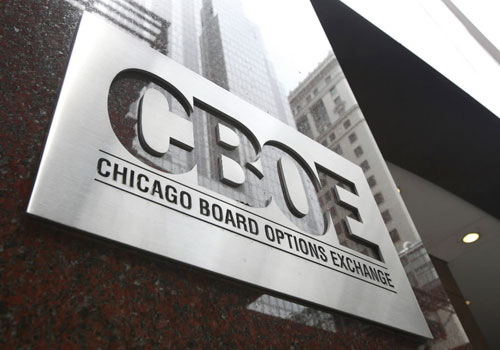In a development that could reshape the regulatory landscape for U.S. capital markets, Paul S. Atkins has officially been confirmed as Chairman of the Securities and Exchange Commission (SEC). Known for his market-oriented philosophy and deregulatory stance, Atkins’ appointment signals a stark departure from the agency’s recent enforcement-led approach, particularly as it relates to digital assets.
The cryptocurrency sector welcomed the news. Bitcoin and Ethereum each rallied over 4% in the immediate aftermath, while publicly listed crypto firms including Coinbase (COIN) and Galaxy Digital posted gains in after-hours trading. The move is viewed as the beginning of a more constructive regulatory chapter, especially by those in the digital asset and fintech communities who had grown increasingly frustrated under former Chair Gary Gensler’s tenure.

“Paul Atkins is clearly pro-crypto having disclosed up to $6 million in digital asset-related investments,” said Max Shannon, an analyst with CoinShares’ research team.
He cited a recently released ethics disclosure, where Atkins reported between $1 million and $6 million in personal investments tied directly to the digital asset sector. This includes equity stakes in Anchorage Digital and Securitize—two firms at the intersection of institutional crypto custody and tokenization—as well as an investment of up to $5 million in Off the Chain Capital, a crypto-focused investment fund.
“This should be accelerated, yet since the beginning of the year, the SEC has become notably more pro-crypto—settling lawsuits with Ripple, Uniswap Labs, Consensys, Kraken, Coinbase, and a few other crypto firms. The regime under Gensler—‘regulated by enforcement’—has since started to unravel,” he said.
“The knock-on effects will unlock American crypto innovation over the longer term, which was slowly off-shoring to the UAE, Singapore, and other pro-crypto countries,” he told Traders Magazine.
Atkins is not new to the SEC. He served as a commissioner from 2002 to 2008 and was known for his opposition to overly prescriptive rulemaking. His return to the Commission comes at a time when institutional investors are clamoring for regulatory clarity in areas ranging from digital asset custody to decentralized finance (DeFi) and tokenized securities.

“Paul Atkins’ confirmation as SEC Chairman adds to an incredible group of thoughtful, principled leaders who understand crypto and what this innovation means for the U.S. and the rest of the world,” said Binance CEO Richard Teng.
“We are excited to see the positive impact he and the rest of the Administration’s team will have on the future of digital assets,” he shared.
The Senate confirmation of Paul Atkins as SEC Chairman signals a promising shift toward regulatory clarity in the DeFi ecosystem, added Nicholas Roberts-Huntley, co-founder and CEO of Concrete & Glow Finance.
“As a former commissioner, who has demonstrated a history of providing regulatory clarity for digital assets, Atkins represents a marked departure from his predecessor’s enforcement-first approach,” he said.
Roberts-Huntley said Atkins’s leadership comes at a critical time when the agency has already begun revising its stance on digital assets, potentially creating a more innovation-friendly environment for protocols building institutional-grade financial infrastructure.

“We’re optimistic that this regulatory evolution could accelerate the adoption of cross-chain liquidity solutions and sophisticated lending markets, bridging traditional finance with decentralized innovation while maintaining appropriate protections for users and investors,” he said.
From a market structure perspective, Atkins’ appointment may usher in a more predictable and dialogue-driven rulemaking process, in contrast to the litigation-heavy posture of the previous administration.
Observers expect potential revisions to the SEC’s Market Structure Modernization Plan, including a reconsideration of controversial changes to order execution rules and retail access models. There is also anticipation of accelerated clarity around the classification of digital assets, likely through formal rulemaking or enhanced interagency collaboration with the CFTC and Treasury.
Additionally, Atkins is expected to prioritize increased engagement with trading venues and broker-dealers, particularly those developing or integrating tokenized asset infrastructure.
While Gensler often took an adversarial tone in speeches and rule proposals, Atkins is expected to open more direct lines of communication with both traditional financial institutions and emerging platforms.
Internationally, the U.S. has fallen behind regulatory peers in the UK, UAE, Singapore, and the EU, where frameworks like MiCA (Markets in Crypto-Assets) have begun providing clarity and operational certainty. Atkins’ appointment may mark the beginning of a U.S. push to reassert leadership in financial innovation, particularly in the tokenization of assets and cross-border payment technologies.
For institutional traders, the confirmation could revive conversations around onshore capital deployment into digital markets—particularly if clearer regulatory boundaries encourage participation from pension funds, asset managers, and banks that have remained on the sidelines.
Despite the optimism, industry stakeholders are watching closely. Key questions remain about how Atkins will handle unresolved issues related to decentralized finance, stablecoin regulation, and the status of staking services. Moreover, his ability to bring consensus among Commissioners—especially on politically sensitive rulemakings—will shape the agency’s effectiveness moving forward.
Still, for the first time in years, market participants see a path toward greater regulatory certainty.
“This moment is about more than just crypto,” said Shannon. “It’s about whether the U.S. wants to lead in the next chapter of financial innovation—or continue to push talent and capital offshore. With Atkins in the chair, we’re seeing signs that the tide is finally turning.”




